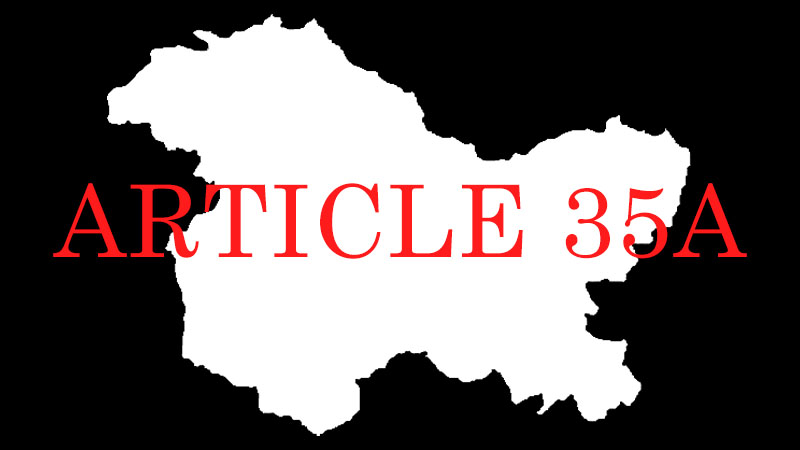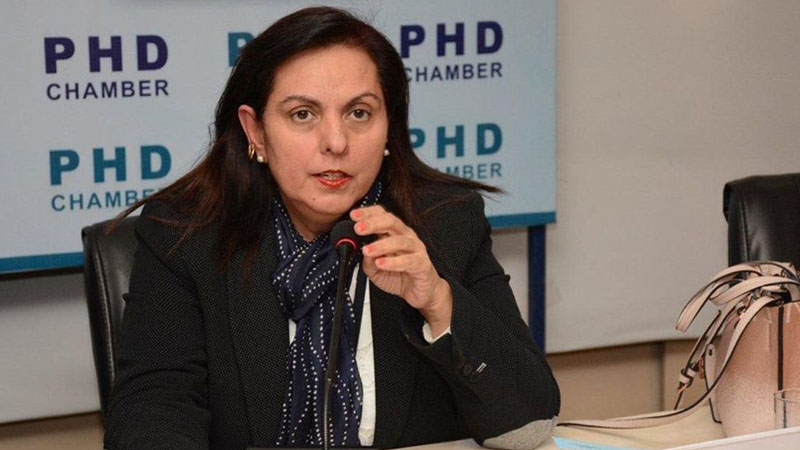Article 35A : What’s the debate all about ?

In a time when newspapers are overflowing with articles on ‘The Article 35A controversy’ and the news channels are all high with hot debates on the issue, this article presents the issue in detail and provides multifaceted views on it.
What does the Article say?
Article 35A is a provision of the Indian constitution that gives the Jammu and Kashmir legislature special privilege over other states to decide permanent residents of the state. It not only empowers J&K to define permanent residents but also gives the people of the state special rights and privileges in different fields like education, acquisition of property, public aid, access to public services etc. It mandates that no act of legislature coming under it can be challenged for violating the constitution or any other law of the land.
The Controversy
Article 35A was incorporated into the constitution through the presidential order on the advice of Jawaharlal Nehru cabinet in 1954. It was issued under article 370(1)(d) which allows the constitution to make certain exceptions and modifications to the constitution for the ‘state subjects’ of Jammu and Kashmir. On the other hand, Article 368(1) empowers only the parliament to amend the constitution.
This raises two significant questions:-
- Did the President go out of his jurisdiction to amend the constitution?
Also, is the article void because it wasn’t passed, in fact, placed in the parliament? - Why the debate?
Many written petitions challenging the constitutional validity of the article have been filed. Two of the most important among them are:
An NGO: “We The Citizens” filed a writ petition against article 35A. Since Article 370 was a temporary provision whose purpose was to bring normality and to strengthen the democracy, how can it be used to bring permanent amendments like 35A?
The arguments put forward by the NGO are:
- It was issued under article 370 which is a temporary provision.
- It is against the spirit of oneness in India. It creates a class within a class of Indian citizens. This is a violation of Article 14 which states that the state shall not discriminate amongst its citizens on the basis of gender, caste, creed, religion, place of birth.
- It is a violation of the fundamental rights.
Another important petition was filed by Charu Wali: a native of the state. The arguments put forward by her are:

- It restricts the basic right to property to native women who marry men not holding the PR status.
- Their children are also denied the permanent resident status.
- It is against article 14 of the constitution as it leads to discrimination on the basis of gender.
- What made it a burning topic?
On August 06, 2018, the apex court was to hear a bunch of petitions challenging the validity of article 35A. This led to widespread protests and debates in the state. Since then, the issue has become a permanent part of the national dailies.
Doosra Pehlu
On one hand, where the Hurriyat leaders and PDP believe that scrapping of article 35A will be a threat to the autonomous status of the state, on the other hand, others believe that the existence of article 35A is against the spirit of the integrity of the Indian union. The restriction of ownership rights not only violates the fundamental rights of equality but it also threatens the spirit of one-ness. Moreover, the restriction on ownership rights hampers development. Also, since Kashmir is an integral part of India, why do we need to have a special status for the state? Special legal provisions for the state is an acknowledgment in front of the world that the state is a disputed territory.
There, are widespread protests in Kashmir. PDP leaders do not see article 35A as a violation of the fundamental rights of the constitution but as a violation of the trust and faith with which Jammu and Kashmir signed the Delhi agreement. As per the instrument of accession by which Raja Hari Singh agreed to accede to the Dominion of India, accession was given only in three spheres: external affairs, defense, and communication. The PDP and Hurriyat are against any amendments being made in article 35A because it feels that article 35A is the very basis on which the relationship with India stands. Also, some say that scrapping of the article would create fear of Muslims becoming a minority in the state.
Considering all this, parties must understand that they need to sit together to chalk out ways so that the fears and apprehensions of the people of the state are understood. Also, PDP and Hurriyat leaders need to accept that even if the scrapping of article 35A seems radical, it is an essential move because it violates the fundamental rights which are the very essence of our constitution.





